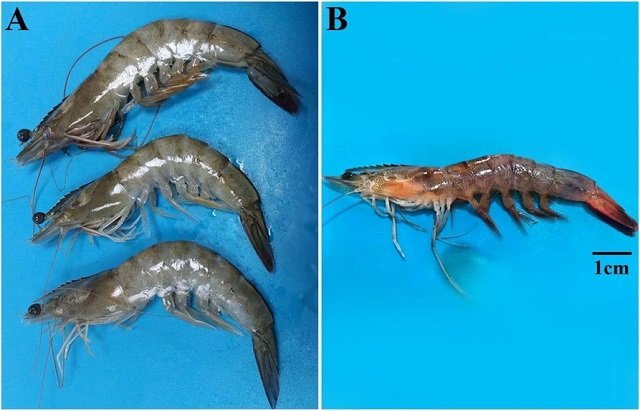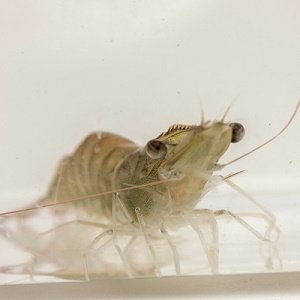
A groundbreaking study published in BMC Veterinary Research has demonstrated the potential of herbal extracts to significantly improve growth, immune response, and disease resistance in Litopenaeus vannamei, commonly known as Pacific white shrimp.
The research, conducted by scientists from the National Institute of Oceanography and Fisheries (NIOF) and Cairo University, offers promising insights into sustainable shrimp farming, particularly in combating Vibrio parahaemolyticus, a bacterium responsible for Acute Hepatopancreatic Necrosis Disease (AHPND), which has caused significant economic losses in the aquaculture industry.
The challenge of vibriosis in shrimp farming
The shrimp farming industry faces significant challenges, particularly due to bacterial diseases such as vibriosis, caused by various Vibrio species, including V. parahaemolyticus.
AHPND, caused by V. parahaemolyticus, is particularly devastating, with mortality rates reaching up to 100% in affected shrimp populations. Traditional methods for controlling these diseases, such as antibiotics, have led to issues like antibiotic resistance and environmental contamination, prompting the search for safer and more sustainable alternatives.
Herbal extracts: A natural solution
The study evaluated the effects of three herbal extracts—“Ontina” or “Canary Islands Incense” (Artemisia herba-alba), “Japanese Honeysuckle” (Lonicera japonica), and “White Lily” (Lilium candidum)—on shrimp growth, immunity, and resistance to V. parahaemolyticus.
These herbs were selected due to their well-documented bioactive compounds, which have shown antimicrobial, antioxidant, and immune-boosting properties in previous research.
Key findings
Enhanced growth performance
Shrimp fed diets supplemented with Lilium candidum exhibited the highest growth rates, with significant improvements in weight gain, specific growth rate, and survival rates compared to the control group. Artemisia herba-alba and Lonicera japonica also improved growth, though to a lesser extent.
Improved immune response
Herbal extracts significantly enhanced immune parameters such as total hemocyte count, phagocytic activity, and antioxidant enzyme levels (catalase, superoxide dismutase, and glutathione peroxidase). Artemisia herba-alba was particularly effective in enhancing phenoloxidase activity, a key enzyme in shrimp immune defense.
Increased disease resistance
Following a challenge with V. parahaemolyticus, shrimp fed herb-supplemented diets had significantly lower mortality rates compared to the control group. Shrimp treated with Lilium candidum had the highest survival rate, with only 13.33% mortality compared to 66.67% in the control group.
Stay Always Informed
Join our communities to instantly receive the most important news, reports, and analysis from the aquaculture industry.
Histopathological improvements
Histological examination of the shrimp hepatopancreas revealed that herbal treatments mitigated severe tissue damage typically caused by V. parahaemolyticus. Shrimp treated with Lilium candidum showed the most preserved tissue structure, indicating the protective effects of the herb against AHPND.
Mechanisms behind the benefits
The study highlights that the three herbs contain various active components that contribute to their immune-boosting and antibacterial properties:
- Artemisia herba-alba is rich in artemisinin, flavonoids, and phenolic compounds, which possess potent antioxidant and antimicrobial activities. Artemisinin has been shown to enhance immune function and disease resistance in aquatic species.
- Lonicera japonica contains chlorogenic acid, luteolin, and quercetin, which exhibit strong anti-inflammatory and antioxidant effects, modulating immune responses. It also has potential benefits for gut health.
- Lilium candidum contains steroidal saponins, alkaloids, and flavonoids such as kaempferol, which have shown anti-inflammatory properties and the ability to modulate immune responses, potentially affecting the secretion of pro-inflammatory cytokines IL-6 and IL-8.
Implications for the shrimp farming industry
The findings of this study highlight the potential of herbal extracts as natural and eco-friendly alternatives to antibiotics in shrimp farming. These findings have significant implications for the industry, offering several potential advantages:
Improved shrimp health and performance
The study demonstrated that dietary supplementation with Artemisia herba-alba, Lonicera japonica, and Lilium candidum significantly enhances growth, survival, and feed utilization in Litopenaeus vannamei. This could translate into more efficient production cycles and higher yields for shrimp farmers.
Strengthened immunity and disease resistance
Herbal extracts boosted shrimp immune responses, as evidenced by increased hemocyte counts, phagocytic activity, and immune and antioxidant enzyme activity. More importantly, they improved resistance against Vibrio parahaemolyticus, the causative agent of Acute Hepatopancreatic Necrosis Disease (AHPND), a devastating disease for the industry. The reduction in mortality following bacterial challenge suggests a promising prophylactic and therapeutic strategy.
Alternative to chemotherapeutics and antibiotics
The study proposes the use of herbal extracts as a safe and eco-friendly alternative to antibiotics and other chemicals traditionally used to prevent and treat diseases in aquaculture. Excessive use of antimicrobials has led to bacterial resistance and food residue issues, posing risks to aquatic ecosystems and human health. Herbal extracts provide a way to reduce dependence on these compounds.
Conclusion
This study underscores the importance of integrating herbal phytobiotics into shrimp diets to combat bacterial diseases such as AHPND. Artemisia herba-alba, Lonicera japonica, and Lilium candidum have proven effective in enhancing shrimp health and productivity, offering a promising strategy for the future of sustainable shrimp farming.
Contact
Amr Fadel
National Institute of Oceanography and Fisheries (NIOF)
Cairo, Egypt
Email: fadel_aqua@yahoo.com
Reference (open access)
Fadel, A., Khafage, A., Abdelsalam, M. et al. Comparative evaluation of three herbal extracts on growth performance, immune response, and resistance against Vibrio parahaemolyticus in Litopenaeus vannamei. BMC Vet Res 21, 166 (2025). https://doi.org/10.1186/s12917-025-04588-0
Editor at the digital magazine AquaHoy. He holds a degree in Aquaculture Biology from the National University of Santa (UNS) and a Master’s degree in Science and Innovation Management from the Polytechnic University of Valencia, with postgraduate diplomas in Business Innovation and Innovation Management. He possesses extensive experience in the aquaculture and fisheries sector, having led the Fisheries Innovation Unit of the National Program for Innovation in Fisheries and Aquaculture (PNIPA). He has served as a senior consultant in technology watch, an innovation project formulator and advisor, and a lecturer at UNS. He is a member of the Peruvian College of Biologists and was recognized by the World Aquaculture Society (WAS) in 2016 for his contribution to aquaculture.







